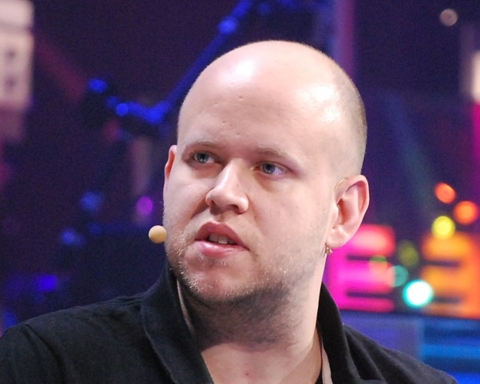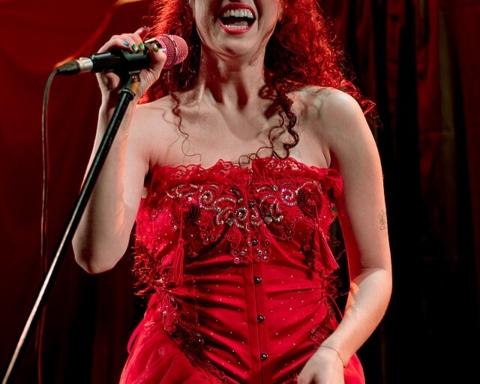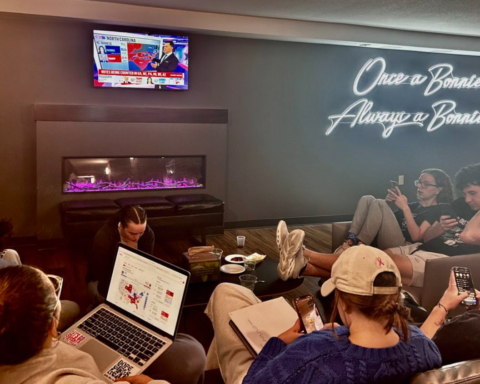The Residential Education Department held “Out At Bona’s,” the second Civil Dialogue the organization’s hosted this fall semester.
The Oct. 6 event consisted of student and faculty members, all speaking about what it’s like to either exercise, come to terms with or reveal one’s sexual orientation on a college campus.
The main speakers included Hilda Myer-Post, the assistant director of the Higher Education Opportunity Program (HEOP); Chris Brown, the director of First Year-Experience and Orientation; and Bryce Spadafora, a junior journalism and mass communication major.
Still, some feel the university could do more to help LGBTQ+ students feel accepted, along with other marginalized populations on campus. And it’s not just students who feel that way.
Until all students feel comfortable at Bonaventure, the university’s inclusion-based work is far from over, said Nichole Gonzalez, the director of Resident Life.
“I think we’re always trying to make sure the conversations stay open and that people know they have someone to come and talk to if they’re having issues,” she added. “Because we know that not everybody has come out before they come to college.”
Gonzalez added that, after the completion of last year’s #RaceMatters campaign, a multicultural campus climate survey told of the work ahead.
“A lot of the survey was very affirming of the things we do as a university,” she said. “The comments we discovered were also telling us race [issues] were not the only thing going on and [that] we need to look outside of that.”
And, so, Gonzalez added, the university decided to take steps toward creating a more inclusive conversation. This began with the renaming of the #RaceMatters campaign to Ideal, an acronym for “inclusion, dignity, equity, action and love.”
“We know that, it being a Catholic institution, people perceive that it’s not the most open institution,” Gonzalez said. “I also think that sometimes it isn’t. Sometimes people probably don’t feel comfortable, but we’re trying to open the door to those conversations.”
Kristen Caputo, a senior journalism and mass communication major, said she feels the university has done more to acknowledge LGBTQ+ students recently; however, she added that students within the LGBTQ+ community on campus have been traditionally neglected.
“The university has taken the time to work with each, individual equality group on campus, but seems to lack in the department of LGBTQ & SPECTRUM related topics,” she said. “It doesn’t make me happy by any means, and I hope they look for changes in that aspect.”
In response, Gonzalez added that the university is in the process of adding to the preexisting housing committee, including more students and aiming to gain new insights.
The big agenda at hand: gender-inclusive housing options. Gonzalez stated that one’s living environment can often play a big part in the pressures they face, so, the passage of this proposal-in-the-making may be one of the biggest steps in ensuring students peace of mind, especially LGBTQ+ students.
“Not that [it’s] all the way done, but we’re looking at more ways we can be structurally and institutionally more open and responsive to the needs of all our students,” Gonzalez added.
Spadafora said he feels housing reformation would be a major step in creating that more open and responsive environment.
“I think gender-inclusive housing would be a huge step for Bonaventure and would make certain students feel more comfortable with their living situations on campus,” he said. “I can’t speak to how much the option would be used, but it would be nice to have.”
Although housing reformation isn’t solidified, a number of gender-neutral bathrooms have been installed around campus. This change comes after New York City Mayor Bill de Blasio signed legislation requiring all single-occupancy bathrooms to be available for all genders. Still, though, Gonzalez added that she hopes to see more of these bathrooms added—until there’s one in every building on campus.
Gonzalez explained that it’ll be difficult for current LGBTQ+ students to reach a place of complete comfort on campus, as our society has to first mend the wounds of suppression. But, she added, the campus can work on improving structural inadequacies to both make students more comfortable and have a part in the ongoing shifting of perspectives at large.
“We’re a Catholic institution and we can’t pretend we’re not,” Gonzalez said. “So we’re always going to have to manage the tensions that are sometimes going to be between societal norms and our Catholic identity. I think that’s something we have an obligation to work through together.”
Caputo said that continuing to encourage dialogue is the biggest piece to the acceptance puzzle.
“I think there could be more guest speakers brought to the campus for everyone to get more educated on LGBTQ issues, and more professors and admin get more involved to help the level of comfort here,” she explained. “The need for professors and admin to know more about the community is important.”
mcgurllt14@bonaventure.edu








